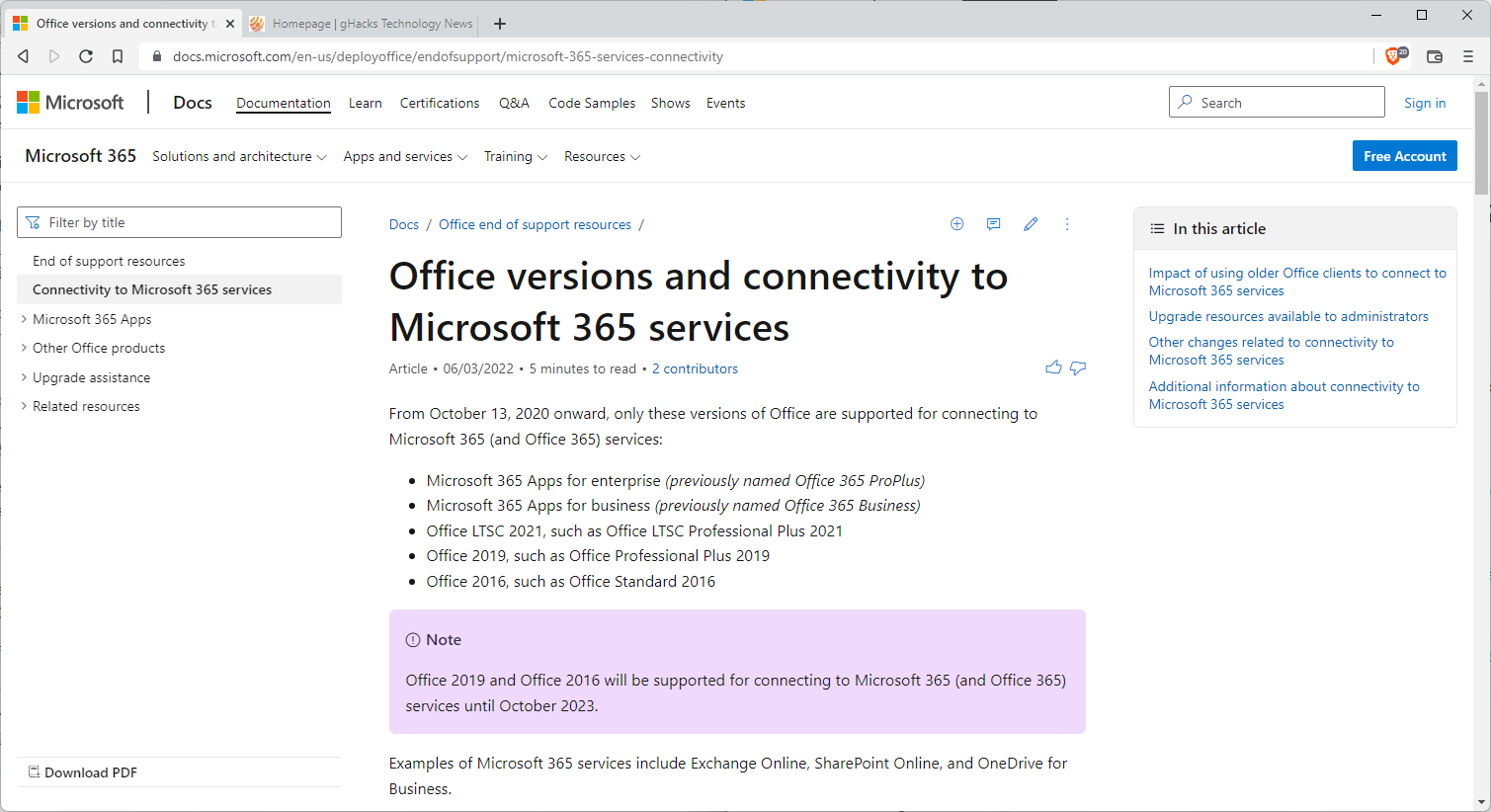Microsoft has the habit of being very cautious when it comes to communication with the public and its customers. The company’s communication is often unclear and open for interpretation. Whether intentional or not, a lack of information may have consequences for Microsoft customers.

A recent example is Microsoft’s Office versions and connectivity to Microsoft 365 services support page. In it, Microsoft is warning perpetual license Office customers that their versions of Office may run into connectivity issues with the company’s Microsoft 365 service and its products.
Perpetual licenses are licenses for standalone Office products. Unlike subscription-based products, perpetual license products are purchased with one-time payments.
Microsoft lists the Office products that “are supported for connecting to Microsoft 365 (and Office 365) services in the beginning. Next to Microsoft 365 apps for Enterprise and business, these are Office 2016, 2019 and LTSC 2021.
Examples of Microsoft 365 services include Exchange Online, SharePoint Online, and OneDrive for Business.
A note reveals that Office 2019 and 2016 will be “supported for connecting to Microsoft 365 (and Office 365) services until October 2023. Support for Office 2016 and 2019 ends on October 14, 2025. Office 2016 is in its extended support phase already, where it will be joined by Office 2019 in October 2023.
A paragraph marked important highlights that Microsoft won’t block the connectivity of Office versions that are still supported and are up to date. The clients may experience performance or reliability issues, however, according to Microsoft.
We won’t take any active measures to block other versions of the Office client that are still supported and are up to date, such as Office 2013 with Service Pack 1, from connecting to Microsoft 365 services. But these older clients may encounter performance or reliability issues over time.
If read correctly, it means that Microsoft won’t block other versions of Office that are still supported from connecting to Microsoft 365 services. It makes no mention of how Microsoft plans to deal with unsupported versions of Office.
The Office version that Microsoft highlights, Office 2013 with Service Pack 1, reaches end of support on April 11, 2023.
Microsoft is deliberately vague on the page. It is unclear whether this is intentional, for instance to scare customers into purchasing new Office versions or switching to subscriptions, or not.
Here is what Microsoft (likely) wants to communicate:
All Office versions that are no longer in mainstream support may run into connectivity issues with Microsoft 365 services, because Microsoft won’t take these older versions into account anymore when developing features for Microsoft 365 or making changes to the service.
That is all. There won’t be any active blocking on Microsoft’s side, but changes made to Microsoft 365 may lead to connectivity issues.
Now You: do you use Microsoft Office? (via ZDnet, Dr. Windows)
Thank you for being a Ghacks reader. The post Office may or may not work with Microsoft 365 after end of mainstream support appeared first on gHacks Technology News.
